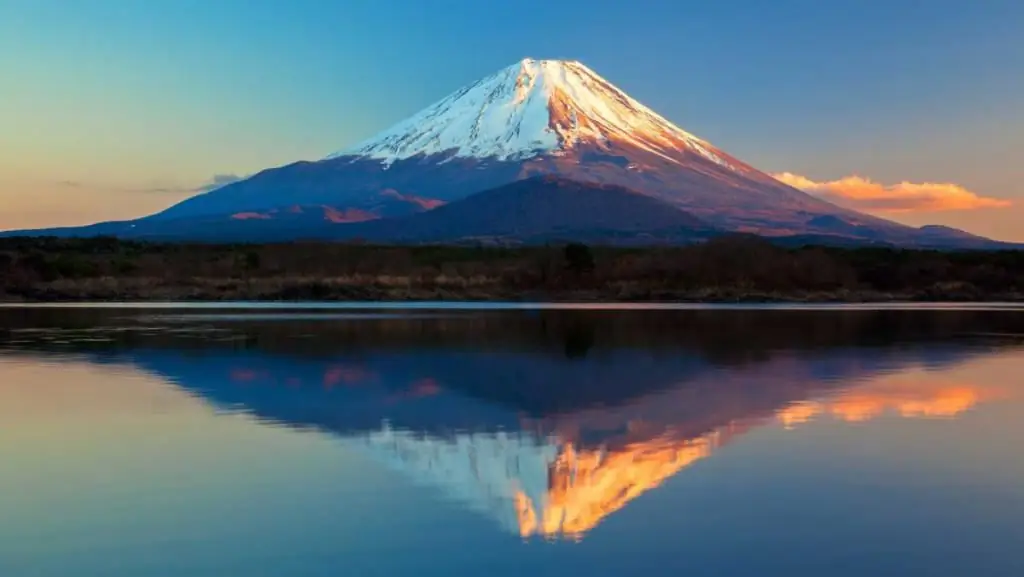- Author Harold Hamphrey hamphrey@travelwaiting.com.
- Public 2023-12-17 10:06.
- Last modified 2025-01-24 11:10.
Vetluga is a river flowing in the Central part of European Russia and is a left tributary of the Volga. A reservoir 889 km long flows through the territory of the Republic of Mari El, Kirov and Kostroma regions.
Those who live in Povetluzhye call themselves "vetlugay". This appeal has been around for a long time. Now, most often, you can find the name "Vetluzhane" - it is more common.
Vetluga is a river (the map is presented below), which surprises with its landscapes and beauty.

Tales about the origin of the name
There are several options for the origin of the name of this river. A long time ago, in a village, on the banks of a nameless river, there lived a boy, Vet, and a girl, Luga, who wanted to get married. However, the girl's father was categorically against their marriage. Then Vet was going to sail for gold to prove that he is an enviable groom. During his absence, Luga came daily to the river bank and sat waiting for her lover. But one night a terrible storm broke out, as a result of which Vet's ship was thrown against the rocks, and the young man drowned. Upon learning of this, the grief-stricken Luga threw herself into the stream and drowned herself, as she could not live without herbeloved. Since then, Vetluga has been a river named in memory of that distant story of unhappy feelings.
However, another version of why the reservoir is called that way is not so romantic. The fact is that on the banks of the river there were dense willow thickets, and the “willow” is a kind of these trees. There is also a place to be a translation of the word Vetluga from the ancient Mari: “yuga” is a river, and “veteli” is a seagull, more precisely “River of seagulls”. Most likely, during the time of the Mari settlers, countless seagulls could be observed above the water surface.

Features of the river
Vetluga is a river that has a slow flow, which makes it accessible to everyone. It should be noted that the reservoir is navigable for 700 km from the mouth. The banks of the stream are mostly high, some reaching 63 m, and at the source - as much as 147 m!
The river freezes from early November to April, and replenishes its water supply with melting snow. The average speed of the Vetluga is about 7 km/h, and the width in some places reaches 50 m. The total length of the coast is mostly overgrown with coniferous forests: fir, pine and spruce. The water flow is winding, but still there are few islands. Its bottom is mostly silty, but near the Paozer tributary it becomes shallow and rocky.

Localities
In the village of Bystri, located on the northern bank of the river, there is a beautiful wooden church. An amazing panorama of the Vetluzh open spaces opens from this village. There are many settlements along the river coastline:Krasny Yar, Podlysikha, Karasikha, Kladovka, Spasskoye and the Mikheev village, where tourists rafting down the Vetluga can stay for the night.
The significance of the river and the points located on its banks
Vetluga is a river that flows into the Cheboksary reservoir, and on its banks stands the city of Sharya. It has a logging plant, and countless logs are transported along the channel on rafts. It is worth highlighting the village of Krasnye Baki, also located on the banks of the Vetluga. It produces devices for aviation radio communications and medical equipment.
Vetluga River: fishing
It is worth talking separately about the living creatures that inhabit the river basin. Just a huge number of fish: pike, pike perch, perch, asp, catfish, burbot. It must be said that sterlet is also found, which, of course, speaks of the purity of river water. It is well caught on spinning ide. This area is a paradise for fishermen.

Recreation centers on the Vetluga River
The hostel, located in the Nizhny Novgorod region, with the same legendary name "River Chaek", provides its services to everyone, in which there are rooms for living from standard to luxury class. To ensure the leisure of tourists at the base, there are: a volleyball court, a shooting range, barbecues, billiards, a rustic and “royal” bathhouse (brooms, aroma sets, etc. are attached to it). A guarded parking lot has also been built here. The last aspect, as a rule, is provided by almost all recreation centers on the Vetluga River.
The hostel "Sunflowers" offers its customers winter fishing in the pond,bicycle excursions to picturesque places and rafting and kayaking. For accommodation there are spacious cozy wooden cottages, the price of which includes three meals a day. Extreme sports services are also provided: a climbing wall and rope crossings.
Recreation center "Vetluga" offers its customers all the conditions to take a break from the hustle and bustle of city life on the banks of one of the most beautiful rivers of the Russian Plain. Near the recreation area is the picturesque village of Troitskoye with an old Russian church, the appearance of which is striking in splendor, and the estate of the Levashov landlords, which undoubtedly makes visiting this base interesting for history buffs. Residential houses made of quality log cabins, friendly staff and homemade food in the dining room with countless pastries - all this awaits you on the territory of the Vetluga recreation center.
The beauty of nature inspires beauty
The Vetluga River (the photo is available in the article) has extremely picturesque beauties that inspired many creators of culture. For example, many people remember the works of such great people as Pavel Ivanovich Melnikov-Pechorsky, Vladimir Galaktionovich Korolenko and Mikhail Mikhailovich Prishvin. Their works were dedicated to the banks of this river.

“Vetluga is gaining strength with us, in the Kruglyzh forests and swaths,” wrote the poet Eduard Kulakov.






